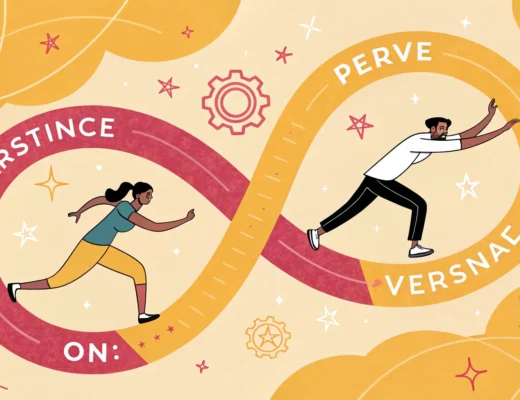The Story I Told Myself
The narrative I created was powerful and limiting: I was just that kid who would never truly be liked, who had to work extra hard for acceptance, whose fate was “written in the stars of my genetics.” I believed I was fundamentally flawed and that my only path to connection was through constantly accommodating others. This story wasn’t just in my head – it manifested in countless daily decisions:- Saying yes when I wanted to say no
- Changing my opinions to match those around me
- Avoiding conflict at all costs
- Putting my needs last, consistently
- Measuring my success by others’ approval
View this post on Instagram
The Cost of People-Pleasing
What I didn’t realize during those years was the tremendous price I was paying. People-pleasing isn’t just exhausting – it’s a form of self-erasure. By constantly molding myself to others’ expectations, I was losing touch with who I actually was and what I truly wanted. The most painful part? I had convinced myself this was my only option. When you believe your past or your genetics predetermines your fate, you stop looking for alternatives. You accept limitations that don’t actually exist. This mindset affected everything from my personal relationships to my business decisions. Even as I found success in entrepreneurship, launching and growing companies like Hawke Media, part of me was still that kid desperate for approval, making choices based on what would earn me validation rather than what aligned with my authentic vision.Recognizing the Pattern
Recognition is the first step toward change. For me, seeing this pattern meant acknowledging that:- My worth was never actually dependent on others’ opinions
- The story I told myself was just that – a story, not an immutable truth
- My past experiences shaped me, but didn’t have to define me
- I had the power to create a new narrative
Writing a New Story
Today, I’m still working on rewriting that childhood narrative. I’ve learned that my value doesn’t come from external validation but from living authentically. My genetics didn’t predetermine my fate – my choices and perspective do. This shift has transformed not just my personal life but my approach to business. I make decisions based on my values and vision, rather than anticipating approval. I’ve found that, ironically, when you stop trying so hard to please everyone, you often end up creating more meaningful connections and more impactful work. If you recognize yourself in my story—if you’re the person who always puts others first, living for external validation—know that you can change that narrative. Others’ perceptions don’t determine your worth. The story you’ve been telling yourself about who you are and what you deserve isn’t fixed. You can write a new one.Frequently Asked Questions
Q: How can someone begin to break the cycle of people-pleasing?
Breaking the people-pleasing cycle starts with awareness. Notice when you’re saying ‘yes’ when you really want to say ‘no’. Practice setting small boundaries in low-risk situations, and work on tolerating the discomfort that comes with potentially disappointing others. Remember that your needs matter just as much as anyone else’s.
Q: Is people-pleasing always harmful, or can it sometimes be beneficial?
While being considerate of others is healthy, chronic people-pleasing comes from fear rather than genuine care. The difference lies in motivation – are you helping because you want to, or because you’re afraid of rejection? Healthy giving originates from a place of fullness, not from a desire to earn love or acceptance.
Q: How does childhood experience shape adult people-pleasing tendencies?
Childhood experiences, especially those involving rejection or conditional acceptance, often create the foundation for adult people-pleasing. Children who learn that their worth depends on pleasing others often carry this belief into adulthood. Understanding these roots can help us recognize that these patterns were adaptive strategies for survival, not inherent character flaws.
Q: Can people-pleasing affect professional success?
Absolutely. People-pleasers often struggle with setting boundaries, advocating for themselves, and making decisions that might be unpopular but necessary. In leadership positions, excessive people-pleasing can lead to inconsistent direction, avoidance of tough conversations, and burnout. Learning to lead authentically rather than for approval creates more sustainable success.
Q: What’s the relationship between self-worth and seeking external validation?
When our self-worth is externally determined, we’re essentially putting others in charge of how we feel about ourselves. This creates a constant state of insecurity since external validation is never guaranteed or consistent. Building internal self-worth means developing standards for yourself based on your own values, rather than others’ opinions, and learning to validate your own experiences and feelings.







